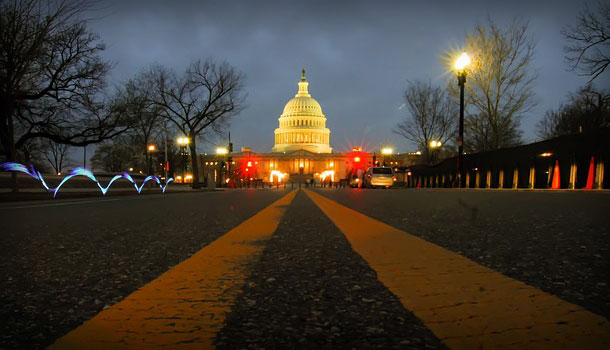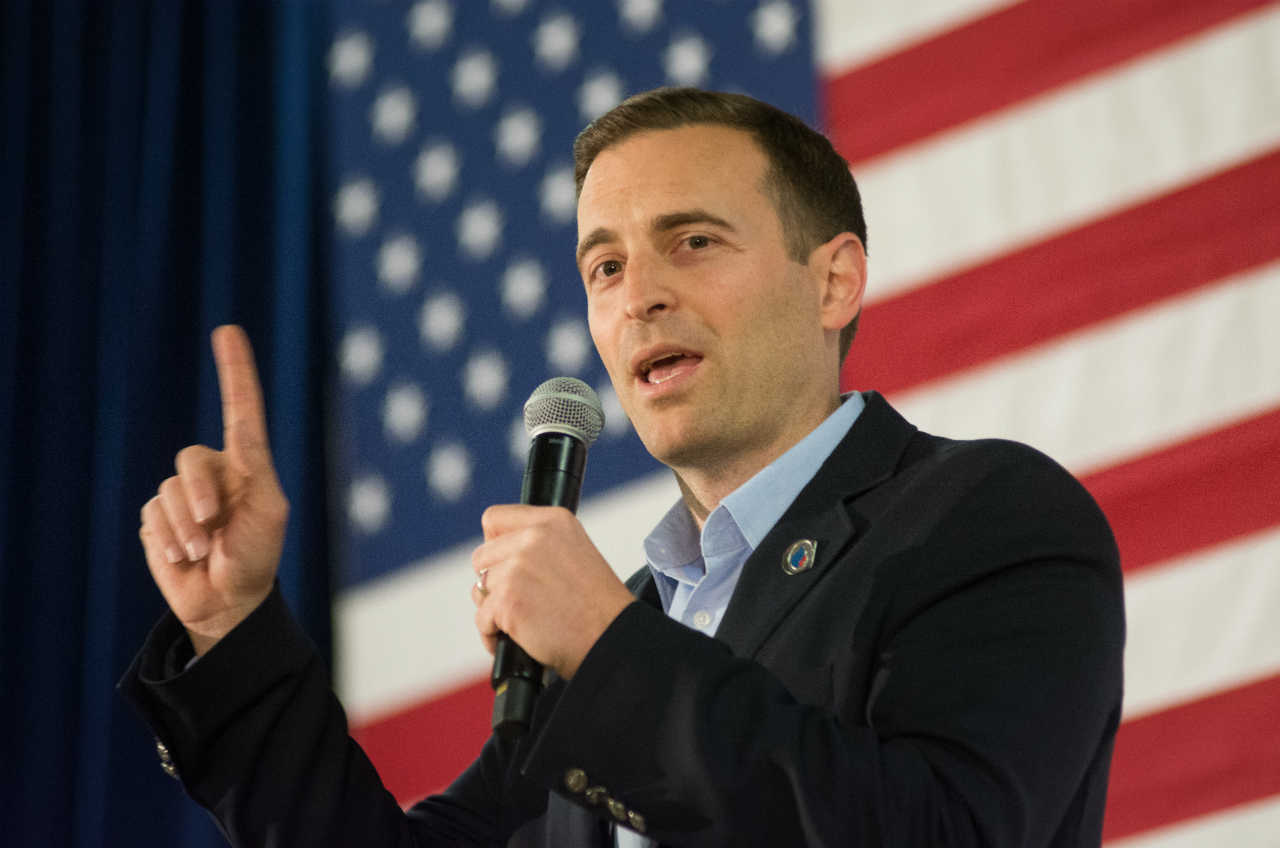
The ineptitude of the United States Congress would almost be charming if it didn’t have such real world implications.
Watching Congress flop around on the most mundane issues is a lot like watching the not-so-sharp neighbor kid try to setup a homemade ramp in front of his basketball hoop as he explains to his little brother how he’s going to dunk a basketball on his BMX bike… You’re pretty much guaranteed to be shaking your head in a few minutes – and I cannot confirm or deny that the above scenario actually happened.
But imagine if it wasn’t the neighbor’s kid? Imagine if you ran your home like Congress runs the country?
Imagine a home life where instead of scheduling your bill payments, or making them a couple days in advance (you know, like normal people), you decide to wait until the very last minute for every single bill, and pay in person, sometimes calling up for extensions you don’t even need?
Imagine if you asked your spouse what they would like for dinner, chicken or steak, and their response was neither. And whatever you wind up making is vetoed, or filibustered – which I suppose would be akin to your spouse turning the stove off every time you turn it on.
Think about, if your home was Congress any important decision would simply be pushed aside until the next year – should we go to Aunt Martha’s wedding? Should we take a vacation? Should we buy a new TV?
It would be a place where absolutely nothing gets done, and when stop-gap decisions are made (instead of buying a new TV you find one on the side of the road) they tend to create even more problems, like your new “free” TV being infested with wasps.
Such is the case with Congress and online gambling.
They’ve had chances
Congress could have easily acted on this by now (either regulating, banning, or something in between like a poker-only bill) but instead they tried to get cute with UIGEA, and then refused to act in any meaningful way ever since. This led to the DOJ coming in and deciding for them –in a stop-gap way– that state’s could decide on their own.
So here we are in 2014, watching countries like Mexico, Portugal, Bulgaria, the Bahamas, and countless other countries make a formal decision on online gambling (for or against) while the U.S. Congress sits on its hands –or in the case of John McCain, plays a free-money online poker app during hearings.
It makes no sense.
There is support both for and against online gambling, so it’s not like this is a “should we build a Death Star” issue, it’s a real issue on a multi-billion-dollar industry. Issues like, “what to do about online gambling” is precisely the reason why we have legislators; deciding how to solve these things is their job.
Unfortunately, they are scared to address these type of issues (issues that pull their ideology in two different directions) because they don’t want to alienate one single vote. In Congress’s mind, it’s better to do nothing and make nobody happy than to take action and pass a bill that will make some people happy and some people mad.
Here’s a look at some of the missed opportunities.
Congress could have acted anytime from 2008-2011
In the wake of UIGEA the poker world had a very vocal champion in Congressman Barney Frank (D-MA). Rep. Frank introduced several online gambling bills in 2008, 2009, 2010, and 2011.
Each year from 2008-2010 Frank’s bills gained a little more support, and in 2010 Frank’s Internet Gambling Regulation, Consumer Protection and Enforcement Act (HR 2267) passed the House Financial Services Committee that Frank chaired by a vote of 41-22-1.
Unfortunately the bill was never brought to the floor of the House of Representatives for a vote, and online poker / gambling bills have never made it past this point since.
Congress should have acted in 2011/2012
Following the effective shutdown of online poker on Black Friday, and the Department of Justice’s newly formed opinion of the Wire Act and online gambling later that year, Congress was essentially handed a silver platter to either legalize or ban online gambling. The DOJ basically went over their head (since Congress wasn’t addressing the issue) and said if you don’t like what we proposed do something about it.
Everything was lined up perfectly for them with Black Friday wiping the slate clean. There was even a bill (HR 2366) introduced by Joe Barton that could have been taken up.
What they decided to do was slap the silver platter out of the host’s hand and storm out of the room.
Congress could have acted in 2012
In 2012 Senate Majority Leader Harry Reid (D-NV), along with UIGEA architect Senator John Kyl (R-AZ) floated the idea of a poker-only bill, but it never got past the “talking” stage.
Congress could have acted in 2013
In 2013 Congressman Joe Barton (R-TX) officially took over the reins from Barney Frank as Congress’s “online poker guy” and introduced another poker-only bill, the Internet Poker Freedom Act of 2013 (HR 2666).
Unlike Rep. Frank’s offerings, Barton’s bills have gotten little attention in Congress.
Congress could have acted this year
Right now Congress has two bills sitting in the Senate and the House respectively (Sheldon Adelson’s RAWA bills) that are looking to ban online gambling. Since Congress doesn’t seem to want to act on bills legalizing online gambling can we at least get a vote on a ban?
It seems even the two men who introduced them aren’t overly keen on having a vote, as Senator Lindsey Graham (R-SC) and Congressman Jason Chaffetz (R-UT) have done a lot of public talking about banning online gambling, but not a single co-sponsor has been added since the bills were introduced.
I know, I might not like the outcome of a RAWA vote, but the chances that bill passes both houses and is signed by the president is incredibly slim. What I want is RAWA to be voted down handily, so we can move on to legalization.
I’m looking for Congress to do their job, even if there is a chance I won’t like the outcome –RAWA could always get straightened out in courts anyway.







